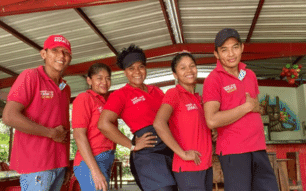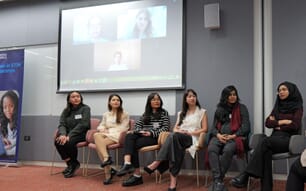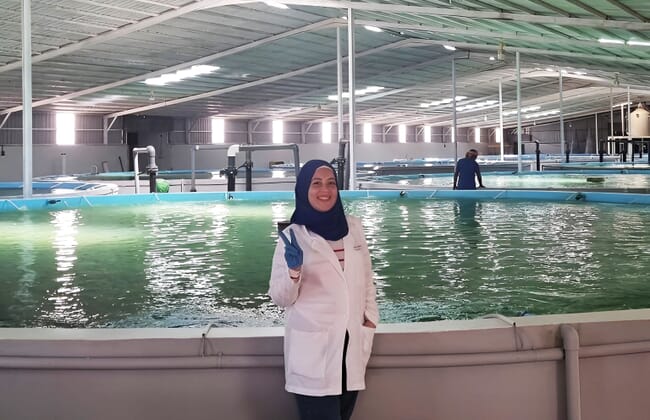
Ali has worked at Elfouad Company, a RAS farm that produces tilapia, and Ecto Aqua, a tilapia and shrimp RAS farm
What sort of farms have you worked on?
Since my university life, I have worked on a tilapia farm in Edku; with sea bass, sea bream and sole at the marine hatchery of Egypt’s National Institute of Oceanography and Fisheries; Alex Aqua Food, an aquaponic farm; Elfouad Company, which produces tilapia in a recirculating aquaculture system (RAS); and Ecto Aqua, a tilapia and shrimp RAS farm.
What does your current role involve?
The Saudi Aquaculture Society is a semi-governmental, non-profit association whose goal is to help the development and growth of the country’s aquaculture sector. As a consultant my role includes:
- Setting standards for farming and the end products.
- Advising on whether farms should be granted licences.
- Proposing areas of research and studies related to aquaculture and its products.
- Studying how to overcome the obstacles faced by the aquaculture industry.
- Holding conferences, exhibitions, and seminars related to aquaculture, both inside and outside the Kingdom.
- Strengthening relations and exchanging professional experiences and common benefits between its members, companies, private institutions and relevant experts from inside and outside the country.
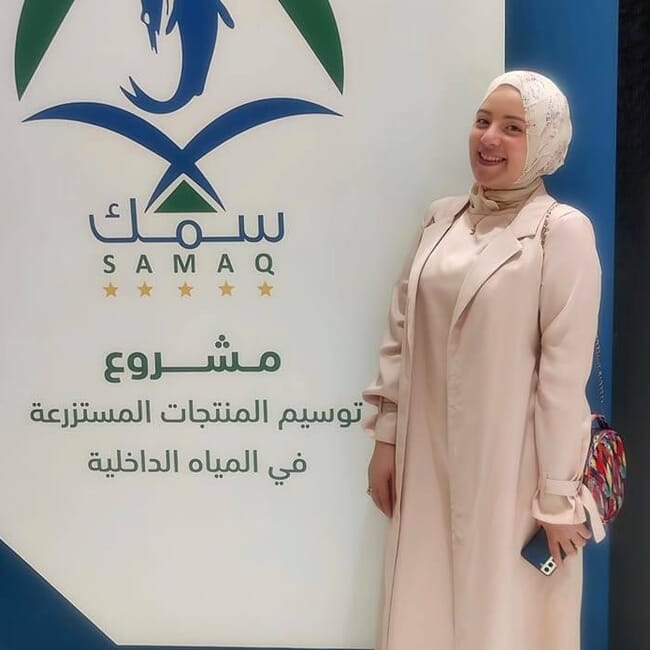
As a consultant for the Saudi Aquaculture Society Ali sets standards for farming and advises on whether farms should be granted licences
What inspired you to study and work in aquaculture?
I felt that looking after fish was perfect for women, in the same way as mothers are the ones who care for their young.
What have been the highlights of your aquaculture career so far?
I’ve been through many scientific and practical experiences, but what made the most difference to me was the International Centre for Advanced Mediterranean Agronomic Studies (CIHEAM) scholarship at the University of Las Palmas de Gran Canaria. It taught me many things, both relating to academia and the aquaculture industry.
Have you preferred your work in academia or as a fish farmer?
I like to mix the two. I am presently working with farmers but sometimes use the academic path to discover solutions to problems on their farms.
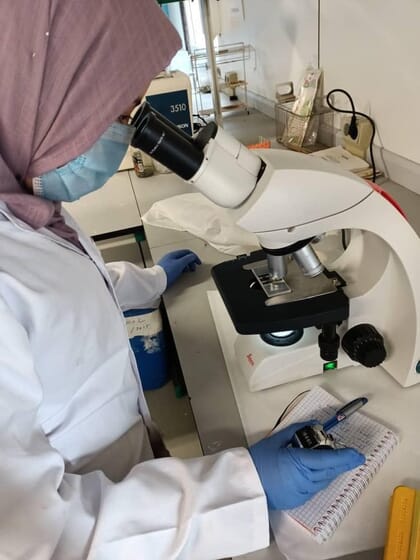
Ali's CIHEAM scholarship at the University of Las Palmas de Gran Canaria taught her many things, both relating to academia and the aquaculture industry
What are the main challenges you have faced in your field?
In the beginning, many people spread the idea that working in traditional pond farms was not suitable for women, but now they know this is not the case. There are also opportunities for women in lots of other farming systems, including biofloc, RAS, aquaponics, mussels and algae.
What achievement are you most proud of so far?
I am proud and grateful for every achievement I have achieved in my life. I am grateful for the job after graduation at the aquaponic and RAS farms, the CIHEAM scholarship, and my current work at the Saudi Aquaculture Society.
Have there been any people or organisations who you’ve found particularly inspirational in the sector?
The General Fisheries Commission for the Mediterranean (GFCM), led by Dr Hossam Hamza, as they were one of the first organisations in the country to encourage women in aquaculture, and they also provide regular training.
WorldFish and the United States Soybean Export Council (USSEC) are also inspirational, because of their ongoing courses and training, as well as their work connecting students and farmers.
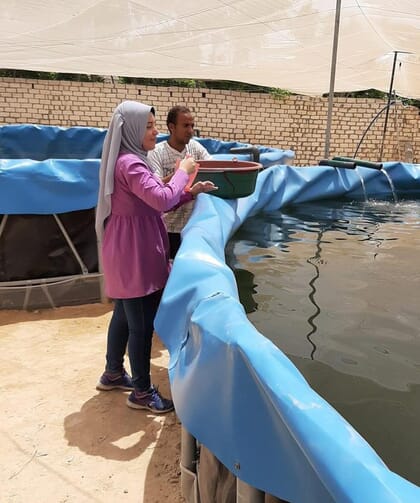
Ali is currently working with fish farmers and uses her experience in academia to discover solutions to problems on their farms
What advice would you give to women who are considering starting a career in aquaculture?
To have the determination and resolve to dream and strive to achieve it, and to think outside the box and get themselves out of the zone that the world and people tell them to put themselves in.
What are your long-term ambitions in the sector?
Working in the fisheries and aquaculture sector for the Food and Agriculture Organization of the United Nations (FAO), because their projects are shared with many countries, and therefore they develop and transfer culture, science and technology from one place to another, their goals are production, awareness, and science, and I have a passion for this. There are production, awareness fields, lectures, and scientific workshops. There is scientific research. There is problem-solving.
If you could solve one issue in aquaculture, what would it be?
The instability of markets around the world and problems linked to water scarcity, high temperatures and resulting heat stress.
What production systems do you think have the most scope for growing Middle Eastern aquaculture in the coming years?
Those that are environmentally friendly and sustainable, such as:
- Integrated multi-trophic aquaculture (IMTA) systems – farming species, such as fish and algae, that are compatible so that they benefit from each other.
- Biofloc systems – as these can reduce the amount of feed while maintaining water quality to the greatest possible degree.
- Recirculating aquaculture systems (RAS) – these could be one of the best systems if implemented accurately, but they can also result in an increase in fish prices due to the cost of implementing these systems.


